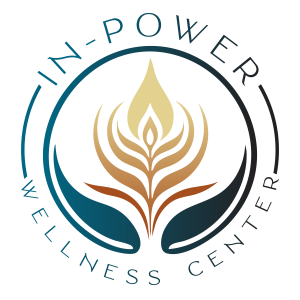
In the realm of traditional Chinese medicine (TCM), acupuncture has long been revered for its ability to restore balance within the body, mind, and spirit. One of the most fascinating aspects of acupuncture is its profound impact on the autonomic nervous system (ANS), the critical regulator of involuntary bodily functions. Understanding how acupuncture influences the ANS provides a bridge between ancient wisdom and modern science, shedding light on its therapeutic efficacy.
Understanding the Autonomic Nervous System
The ANS is a complex network of nerves that governs the functions of internal organs, including the heart, lungs, digestive tract, and glands. It operates unconsciously, maintaining homeostasis and responding to stress. The ANS is divided into two main branches:
- Sympathetic Nervous System (SNS): Often referred to as the “fight or flight” system, the SNS prepares the body to respond to perceived threats by increasing heart rate, dilating airways, and inhibiting digestion, among other responses.
- Parasympathetic Nervous System (PNS): Known as the “rest and digest” system, the PNS promotes relaxation, digestion, and recovery by slowing the heart rate, constricting airways, and stimulating digestive processes.
Optimal health requires a harmonious balance between these two systems, enabling the body to adapt to stress while maintaining restorative functions.
The Science Behind Acupuncture and the ANS
Recent scientific investigations have begun to elucidate how acupuncture modulates the ANS. Here’s a look at some key mechanisms:
- Neurotransmitter Regulation:
Acupuncture stimulates specific points on the body, known as acupoints, which can trigger the release of neurotransmitters and hormones. For instance, it has been shown to increase levels of endorphins and serotonin, which can enhance mood and promote relaxation. These biochemical changes help activate the PNS, fostering a state of calm and facilitating stress recovery.
- Vagal Nerve Stimulation:
The vagus nerve is a major component of the PNS, extending from the brainstem to various organs. Research indicates that acupuncture, particularly at points like PC6 (Pericardium 6) and ST36 (Stomach 36), can stimulate the vagus nerve. This stimulation promotes parasympathetic activity, reducing heart rate and blood pressure, and enhancing digestive functions.
- Reduction of Sympathetic Dominance:
Chronic stress can lead to an overactive SNS, resulting in issues like hypertension, anxiety, and digestive disorders. Acupuncture has been found to inhibit excessive sympathetic activity by modulating the hypothalamus-pituitary-adrenal (HPA) axis, a central stress response system. By dampening the HPA axis activity, acupuncture helps mitigate the effects of chronic stress.
- Balancing Heart Rate Variability (HRV):
HRV is a measure of the variation in time between heartbeats and is considered a marker of ANS balance. Higher HRV indicates a healthy balance between the SNS and PNS. Studies have demonstrated that acupuncture can improve HRV, reflecting enhanced autonomic regulation and a better ability to adapt to stress.
Clinical Implications
The ability of acupuncture to balance the ANS has significant implications for a wide range of conditions, including
- Stress and Anxiety: By promoting parasympathetic activity and reducing sympathetic overdrive, acupuncture can alleviate symptoms of stress and anxiety, fostering a sense of calm and well-being.
- Chronic Pain: ANS dysregulation is often associated with chronic pain. Acupuncture’s ability to modulate pain pathways and neurotransmitter release can provide relief and improve pain management.
- Digestive Disorders: Conditions like irritable bowel syndrome (IBS) are linked to ANS imbalance. Acupuncture’s regulatory effects on the digestive system can help restore normal function.
- Cardiovascular Health: By improving HRV and reducing sympathetic dominance, acupuncture supports cardiovascular health, potentially lowering the risk of hypertension and heart disease.
Conclusion
Acupuncture offers a unique and scientifically supported approach to balancing the autonomic nervous system. Through its intricate interactions with neurotransmitters, the vagus nerve, the HPA axis, and heart rate variability, acupuncture fosters harmony within the body’s regulatory systems. This balance is crucial for maintaining optimal health and addressing a variety of conditions rooted in autonomic dysregulation.
As we continue to explore the depths of acupuncture’s mechanisms, the integration of ancient wisdom with modern science will undoubtedly enhance our understanding and application of this remarkable healing modality.
References:
- MacPherson, H., et al. (2017). Acupuncture for chronic pain and depression in primary care: a programme of research. Programme Grants for Applied Research, 5(3), 1-248.
- Langevin, H. M., et al. (2006). Connective tissue fibroblast response to acupuncture: dose-dependent effect of bidirectional needle rotation. Journal of Alternative and Complementary Medicine, 12(6), 623-627.
3. Li, P., & Longhurst, J. C. (2010). Neural mechanisms of electroacupuncture’s hypotensive effects. Autonomic Neuroscience, 157(1-2), 24-30.












